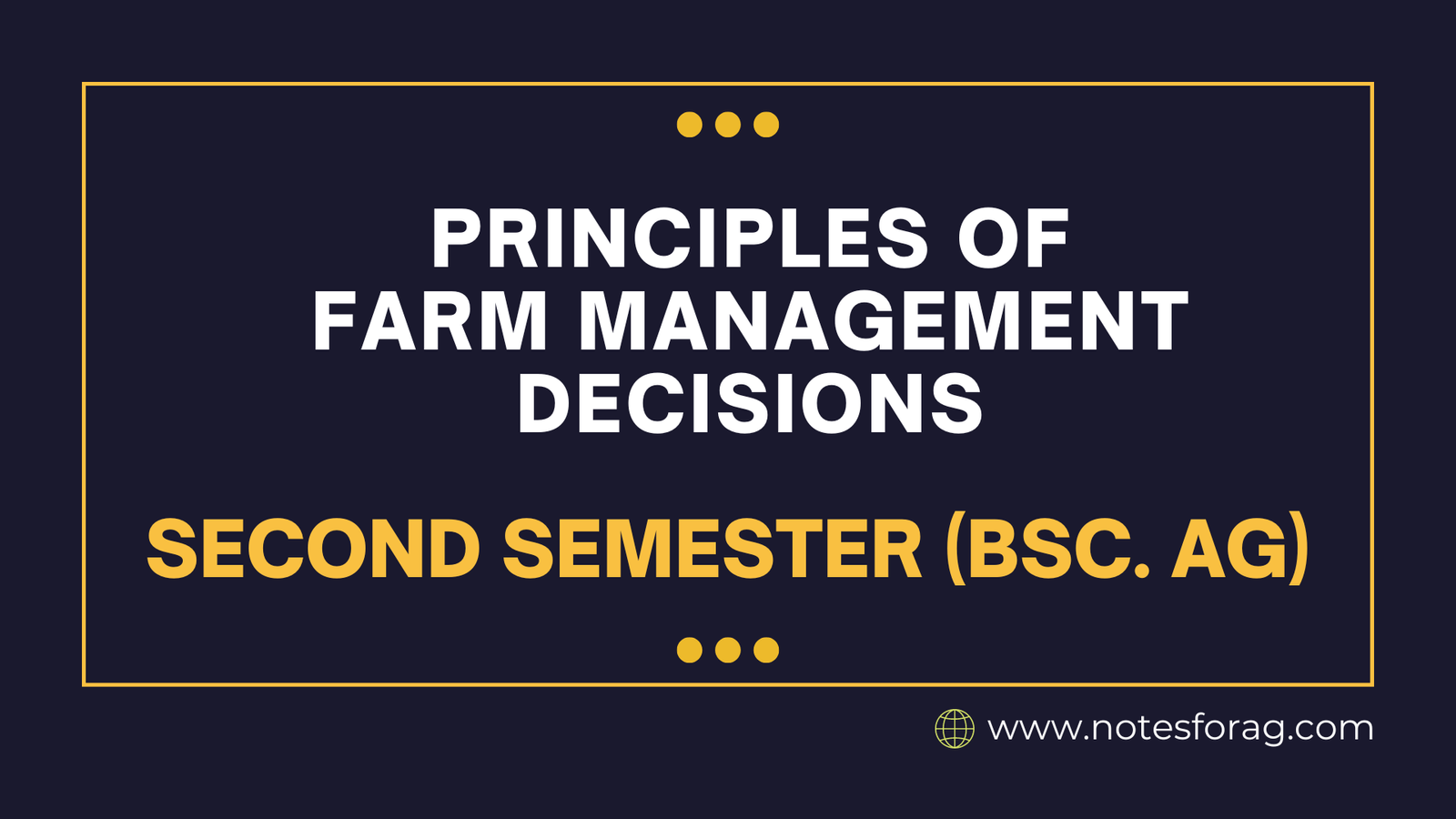The principles of farm management decisions offer a framework for maximizing resource utilization, improving production efficiency, and maximizing profitability in farming operations. Variable proportion, factor substitution, the cost principle, equi-marginal return, opportunity cost, time comparison, and comparative advantage are some of the fundamental ideas. In order to ensure sustainable and productive farming practices, these guidelines assist farm managers in making well-informed decisions regarding the distribution of inputs, cost control, and long-term planning. Farm managers can efficiently balance resource use, production objectives, and financial returns by putting these principles into practice.
Table of Contents
Introduction
A number of economic concepts that support the optimization of resource use, production efficiency, and profitability serve as a basis for farm management decisions. Variable proportion, factor substitution, equi-marginal return, cost principle, opportunity cost, time comparison, and comparative advantage are some of these ideas.

An outline of each principle is provided below:
Variable Proportion
This principle studies the relationship between changes in the proportion of inputs and output levels. It is predicated on the law of diminishing returns, which says that increasing one input while maintaining the same level of the others will ultimately result in lower returns per unit.
Factor Substitution
Factor substitution is the process of switching out one input for another in order to keep the output at the same level. This idea aids in determining the most economical combination of inputs. A key factor in choosing the best input mix is the marginal rate of technical substitution, or MRTS.
Cost Principle
In order to maximize profits, the cost principle emphasizes cutting costs. Making decisions that lower the overall cost of production without sacrificing output quantity or quality requires analyzing fixed and variable costs.
Equi-Marginal Return
According to the equi-marginal return principle, resources should be distributed among various businesses or production activities so that the marginal returns—an increase in output per unit of input—are equal. This guarantees the best possible use of available resources.
Opportunity Cost
Opportunity cost is the cost of choosing not to pursue the next best option. It entails taking into account the advantages that might have been attained by employing resources differently in farm management. By weighing the possible advantages of various uses, decisions are made to optimize total returns.
Time Comparison
The time comparison principle entails assessing decisions’ long-term effects while taking future costs, investment returns, and depreciation into account. It guarantees that decisions made now are sustainable and in line with long-term objectives.
Comparative Advantage
Specializing on agricultural activities where the farm has a lower opportunity cost than others is advantageous, as the comparative advantage principle emphasizes. This can result in higher overall profitability and efficiency, particularly when trading or diversifying farm operations.
To maximize profitability, increase efficiency, and make the best use of available resources, farm management decisions must adhere to certain principles. These principles of farm management decisions include the cost principle, which focuses on minimizing production costs, variable proportion, which modifies input ratios, and factor substitution, which swaps out one input for another in an economical manner. Opportunity cost takes into account the value of the next best option, whereas equi-marginal return guarantees that resources are distributed to equalize marginal returns. Time comparison assesses decisions’ long-term effects, and comparative advantage promotes specialization in low-cost endeavors. When combined, these ideas aid in the strategic and sustainable principles of farm management decisions.
Frequently Asked Question(FAQ)
What are the principles of farm management decisions?
The cost principle, opportunity cost, equi-marginal return, variable proportion, factor substitution, time comparison, and comparative advantage are among the guiding principles of farm management decisions.
Why is opportunity cost important in farm management?
Opportunity cost is the price paid for forgoing the next best option. By weighing the potential advantages of various resource uses, farm managers can make decisions that maximize total returns by taking opportunity costs into account.
Related Articles

